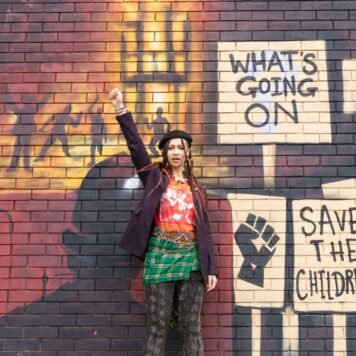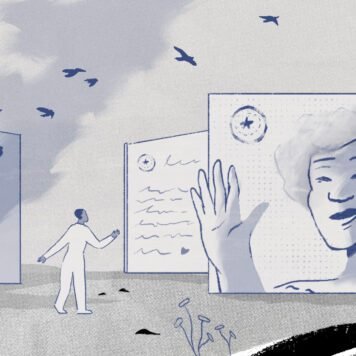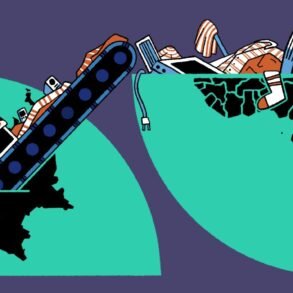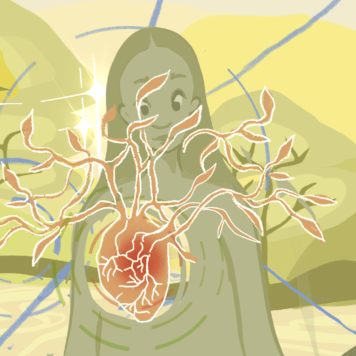The vision of abolition is a world without police and prisons. A world in which our communities are supported, equipped, and empowered to care for each other. It’s a vision rooted in the liberation of all people – making it a direct threat to institutions that depend on inequality to function.
But how do you rid the US of systems that are written into its DNA? How do you free an entire people from abusive relationships with the state when we’re still in abusive relationships with ourselves?
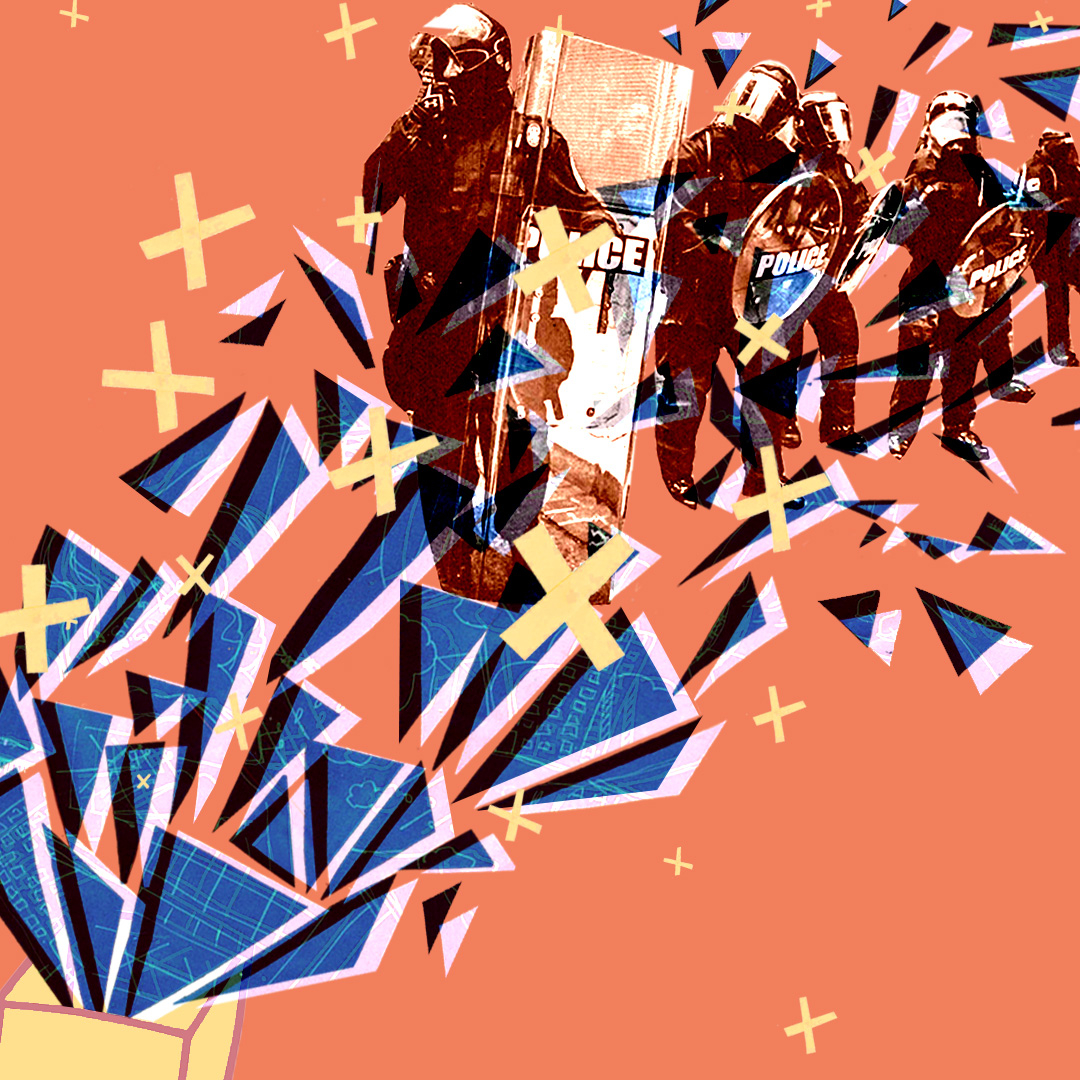
Abolition is a tall order.
Once we’ve graduated beyond the disingenuous demands for abolitionists to eradicate all harm before challenging the Prison Industrial Complex, we’re still confronted by the ever-evolving and serious demands of transformative justice and mutual aid. We still have to find ways to simultaneously tend to the dysfunction created by police and prisons, protect ourselves from further harm, and prepare for the withdrawal our communities will go through after they are gone.
Emboldened by the most recent failures of police reform, many people have turned to abolitionist language to colour their chants and decorate their arguments. But the scope and influence of the Prison Industrial Complex has also left many feeling overwhelmed and demoralised by the sheer amount of work to be done (and the care with which it must take place). As a result, many advocates for abolition have become mere sympathisers – exchanging core principles of the movement for lower hanging fruit.
Though any compromise besides abolition is incongruous with the movement, the temptation of reform is understandable. It’s important to acknowledge that many of us have experienced moments where abolition has felt too large to hold meaningfully.
But most often, it is not the magnitude of abolition that fails us. It’s our expectations around how liberation will arrive.
While there are many assumptions and expectations that conflict with abolitionist strategy, there are three that particularly stand out for their ability to overwhelm and demobilise potential advocates.
1. The expectation that answers to harm should make us feel good
As our communities are dealt grief after grief by systems of oppression and our streets are swollen with righteous anger, it can be tempting to confuse the catharsis of vengeance for the presence of justice. This conflation of punishment and accountability creates distrust in any solution that does not make us feel good.
The slow and intentional work of abolitionist organizing can feel overwhelming because rather than satiating our anger and helping us escape pain, it teaches us to honour our anger and guides us through our pain.
At this very moment, people around the world are celebrating the conviction of Derek Chauvin, a Minneapolis police officer, for the murder of George Floyd. This conviction is being heralded by some as a sign of justice within the legal system. But while one officer has been convicted after nearly a year of protests and decades of violence, there has been no conviction of the department that trained, armed, and enabled the murderer. Reanimating trust in the criminal punishment system allows us to feel good that a cop is being harmed at the expense of all of the people behind bars and all those still suffering at the hands of the MPD.
And this is all the Prison Industrial Complex can offer us: convenience and catharsis at the expense of our most vulnerable.
By highlighting the humanity of those who cause harm, abolition reminds us that we can’t rely on punishment to meet our needs or protect our communities. If healing and transformation is the goal, then accountability must be chosen, not coerced. This can make the process of healing feel terrible. It requires real confrontation of the pain that was caused and the dysfunction at the root of that harm. As long as we continue to prioritise temporary feelings over lasting change, abolition will remain out of reach.
2. The expectation that an answer for one community should be the answer for all
National conversation about abolition has lured many into the trap of critiquing proposed alternatives to the Prison Industrial Complex on the basis of their ability to address harm across the board. Opponents to the movement are quick to point out which instances of harm will not be solved by a particular intervention and which cities would have difficulty implementing them in a meaningful way.
“That wouldn’t work in x city because…”
“That doesn’t account for if y happens…”
The assumption that these critiques are absent from abolitionist discourse aside… the expectation that any alternative will meet the needs of every community at every juncture will always lead to disappointment.
The peer-driven mental health crisis response program being proposed by CCIT-NYC, a coalition of activists and organisations in New York City, was born from the particular failures of the NYPD to address public health concerns without violence. While this program offers insight into how we may address the failures of policing at large, it cannot simply be copy-and-pasted into other contexts because it is being built expressly with vulnerable New Yorkers in mind. This doesn’t make CCIT-NYC’s program any less important or actionable, rather it makes it uniquely capable of creating change in how New York responds to mental health crises.
Subscribe to shado's weekly newsletter
Exclusive event news, job and creative opportunities, first access to tickets and – just in case you missed them – our picks of the week, from inside shado and out.

The historical, political, and geographical landscape of our communities are unique, so why wouldn’t our responses to harm be tailored to that difference? Abolition becomes too overwhelming a proposition if we are tasked with creating a single packaged alternative to police and prisons.
This is where our reliance on the criminal punishment system as a one-stop-shop for addressing harm has failed us. When we trust our society’s safety to a single institution, its absence (no matter its failures) is difficult to conceptualise outside the creation of another institution. Abolition offers us freedom from these myths of a single answer by empowering all communities to meet their unique needs, using guiding principles informed by our most vulnerable.
3. The expectation that answers to large problems reside among those with large influence
Centuries of imperialist propaganda around the pervasiveness of crime (specifically in marginalised communities) has served to legitimise large scale responses from the criminal punishment system. By pushing the narrative that crime is an untameable monster, the US can further justify the existence and failures of its “monster slayers.”
Beyond encouraging racist and classist narratives, this view of crime also damages people’s confidence in themselves to address harm in their communities. It incentivises us to leave issues of public safety to anyone but ourselves. Even those who distrust the police can be tempted into placing all their trust, money, and resources to non-profits, celebrity activists, and politicians – assuming that their influence will surely outperform anything we could do on our own.
But many of the most meaningful actions we can take to reduce harm happen on the stage of our day to day interactions with each other. This can be as simple as checking in on your neighbours, creating meaningful relationships with the people around you and strengthening pathways to conflict resolution. While small in scale, they begin to dismantle our reliance on outside forces to solve our problems.
Abolition affirms the importance of addressing harm on larger scales, but never at the expense of emphasising the transformative power of the individual operating in the context of community. By returning to time honoured practices of mutual aid and resisting the isolation and fear perpetuated by systems of punishment, we give ourselves the best chance to transform the realities of harm in our communities.
Abolition asks a lot of us. It asks us to not only imagine a better world, but to make it with our own hands. Abolition exposes and challenges us beyond our reliance on systems of punishment to solve our problems, raise our children, and build our communities. It is incapable of providing easy answers to issues of harm because it is that desire for ease that the criminal punishment system takes advantage of. It reminds us that there are no shortcuts to liberation.
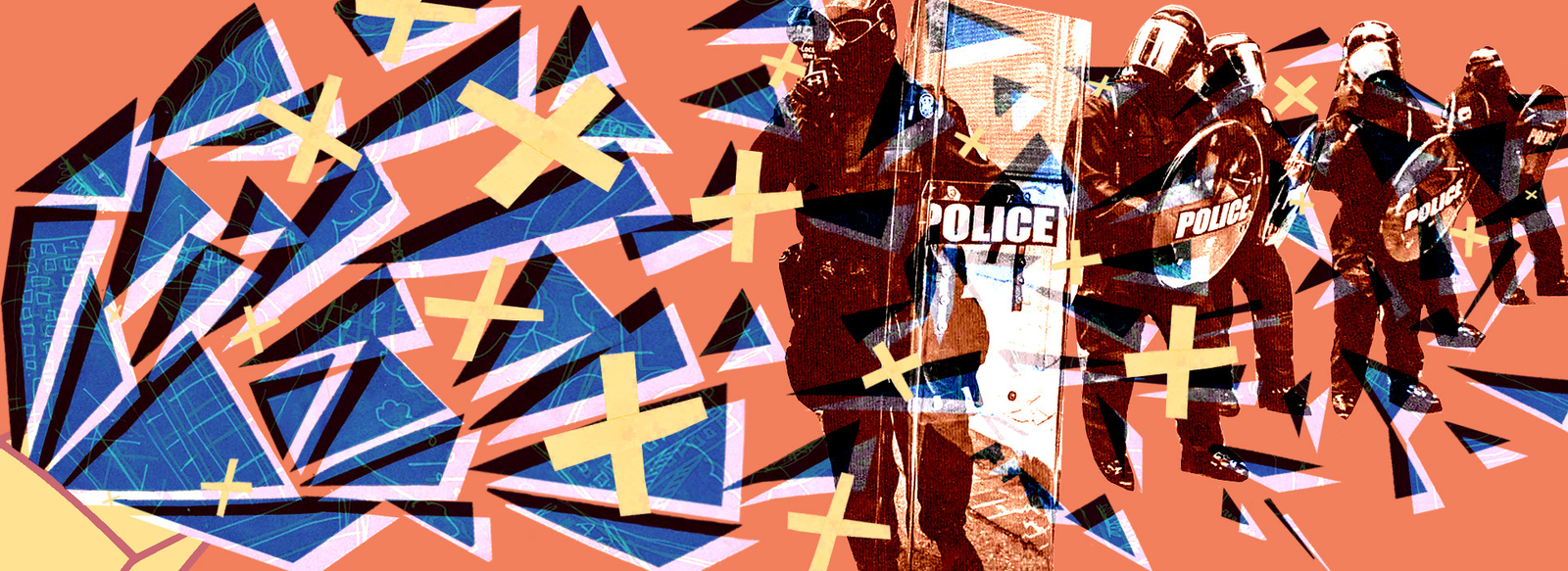
See more of Naomi’s work on instagram

